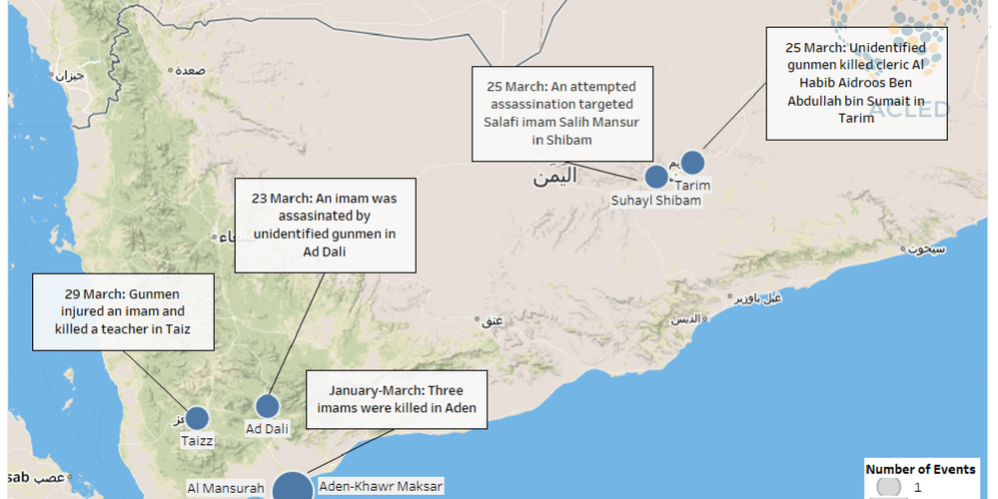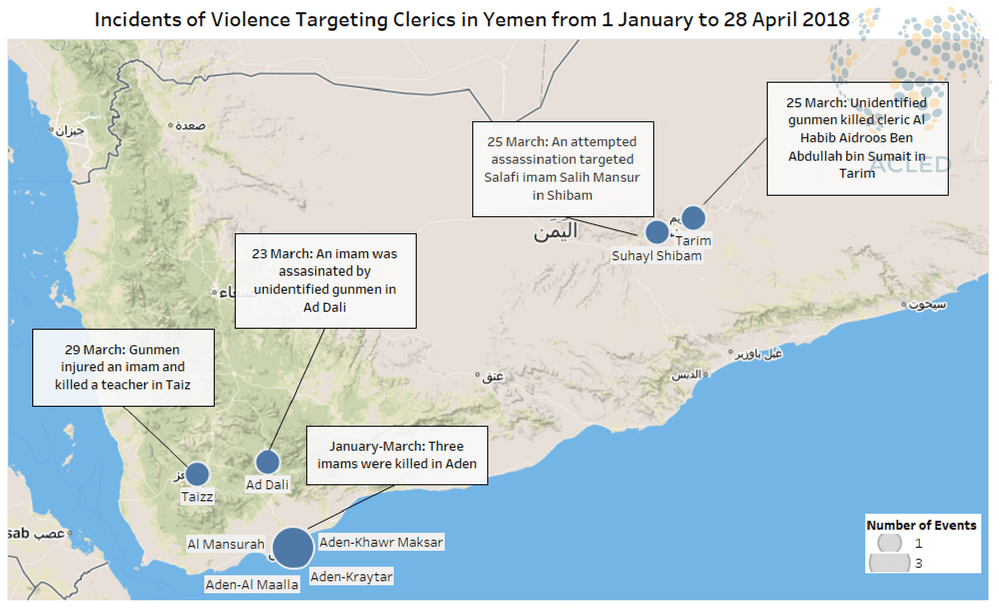Over the first months of 2018, an increasing number of assassination attempts have targeted local Muslim clerics in southern Yemen. At least five imams have reportedly been killed since January, raising the total number of assassinations to 26 over the past two years (Al Jazeera, 23 April 2018). In 2018, violent incidents were reported in the governorates of Aden, Hadramawt, Ad Dali and Taiz — areas under the control of UAE-backed southern secessionist forces or experiencing tensions between rival armed militias (see figure below).
Although no group has yet to claim responsibility for the attacks and the reasoning behind the assassination attempts continues to remain unclear, many of the imams targeted are reported to have links to Yemen’s Al-Islah party. Al-Islah, also known as the Yemeni Congregation for Reform, remains deeply unpopular with pro-secessionist groups in the south of the country due to its alignment with former President Ali Abdullah Saleh during the 1994 civil war and its predominantly northern leadership. While armed militants linked to Al-Islah and supported by Saudi Arabia continue to participate in the war against the Houthis on several fronts, Al-Islah as an organization itself has played a relatively limited role in the conflict.
The recent acts of violence targeting clerics across the south of the country are embedded in the growing tensions between members of Al-Islah and Salafi militias sponsored by the UAE, such as the paramilitary Security Belt Forces led by the vice president of the secessionist Southern Transitional Council and former state minister Hani Ben Braik (Salisbury, 27 March 2018). The Security Belt Forces have been reported to arrest and arbitrarily detain several Al-Islah affiliates, whereas sporadic clashes between militias aligned with Al Islah and Salafi fighters commanded by Abu al Abbas – virtually allied in the war against the Houthis under the umbrella of the Popular Resistance – were reported in Taiz (Al-Maqtari, 29 September 2017; Middle East Eye, 28 November 2017). As UAE-backed militias continue to consolidate their presence in southern Yemen while pushing a pro-secessionist agenda, these events suggest that there is an increasing risk of escalation of factional violence pitting local southern groups against Al-Islah affiliates and other allied pro-Hadi forces sponsored by Saudi Arabia.
Find an explanation of ACLED’s methodology for monitoring the conflict in Yemen here.
AnalysisCivilians At RiskMiddle EastPolitical StabilityUnidentified Armed GroupsViolence Against Civilians







